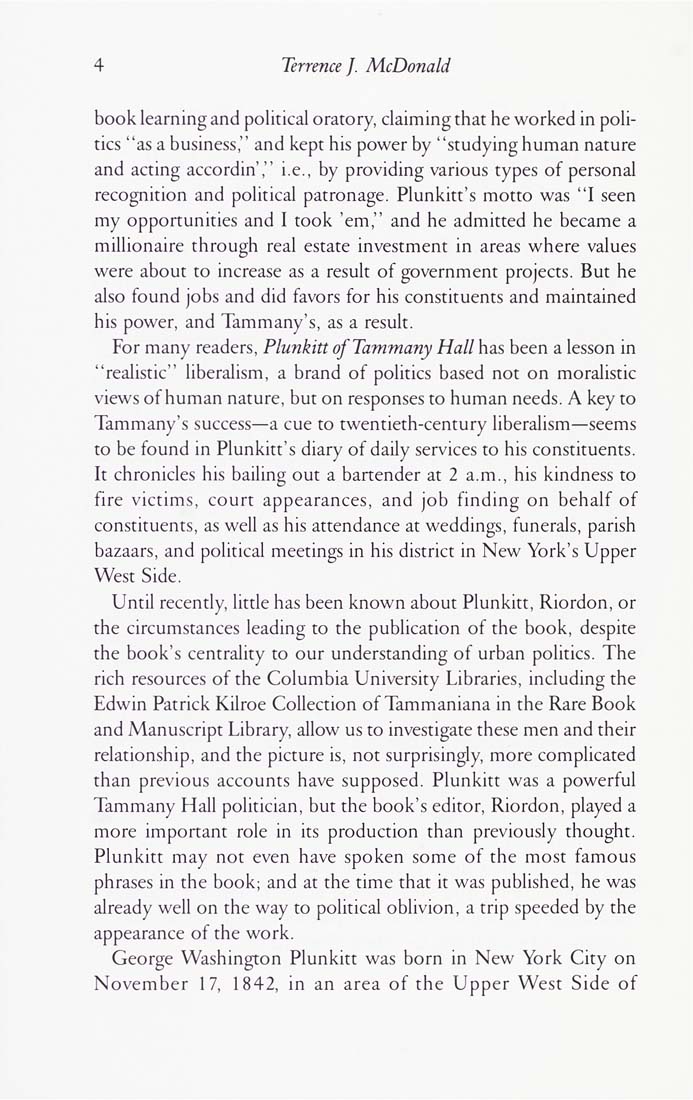Columbia Library columns (v.42(1992Nov-1993May))
(New York : Friends of the Columbia Libraries. )
|
||
|
|
|
|
| v.42,no.2(1993:Feb): Page 4 |

4 TerrenceJ. McDonald book learning and political oratory, claiming that he worked in poli¬ tics "as a business," and kept his power by "studying human nature and acting accordin'," i.e., by providing various types of personal recognition and political patronage. Plunkitt's motto was "I seen my opportunities and I took 'em," and he admitted he became a millionaire through real estate investment in areas where values were about to increase as a result of government projects. But he also found jobs and did favors for his constituents and maintained his power, and Tammany's, as a result. For many readers, Plunkitt of Tammany Hall has been a lesson in "realistic" liberalism, a brand of politics based not on moralistic views of human nature, but on responses to human needs. A key to Tammany's success—a cue to twentieth-century liberalism—seems to be found in Plunkitt's diary of daily services to his constituents. It chronicles his bailing out a banender at 2 a.m., his kindness to fire victims, court appearances, and job finding on behalf of constituents, as well as his attendance at weddings, funerals, parish bazaars, and political meetings in his district in New York's Upper West Side. Until recently, little has been known about Plunkitt, Riordon, or the circumstances leading to the publication of the book, despite the book's centrality to our understanding of urban politics. The rich resources of the Columbia University Libraries, including the Edwin Patrick Kilroe Collection of Tammaniana in the Rare Book and Manuscript Library, allow us to investigate these men and their relationship, and the picture is, not surprisingly, more complicated than previous accounts have supposed. Plunkitt was a powerful Tammany Hall politician, but the book's editor, Riordon, played a more important role in its production than previously thought. Plunkitt may not even have spoken some of the most famous phrases in the book; and at the time that it was published, he was already well on the way to political oblivion, a trip speeded by the appearance of the work. George Washington Plunkitt was born in New York City on November 17, 1842, in an area of the Upper West Side of |
| v.42,no.2(1993:Feb): Page 4 |







